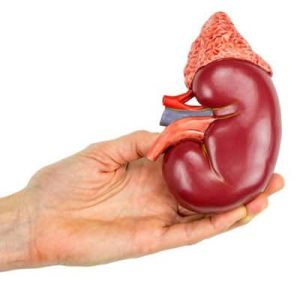Dr Vinant Bhargava is a famous kidney transplant doctor in Delhi. He is associated with Sir Ganga Ram Hospital which is famous for kidney transplants in Delhi.
Kidney transplant in Delhi consists of the extraction of a kidney from a previously healthy individual (cadaver or live) and its placement in a patient with chronic end-stage renal failure and incompatible with life.
Technically, the operation is simple and consists of three anastomoses or joints (arterial, venous and urinary). The duration of the intervention in the recipient is about 3-4 hours. It allows the integral recovery of renal function and normal life. It requires the taking of anti-rejection or immunosuppressive medication for life and frequent medical checks from a kidney transplant doctor in Delhi.
Kidney Transplant in Delhi
Depending on the origin of the graft, it can be a living relative donor (parents, siblings, children, cousins), an emotionally related living donor (for example, between spouses) and a cadaver donor (due to previous brain death or standing heart). The best results are obtained with a live donor kidney transplant.
When is it indicated?
In all patients with end-stage chronic renal failure and without contraindications, prior to the start of dialysis or once included in a hemodialysis or peritoneal dialysis program. It requires the performance of a series of analytical and immunological studies, various imaging techniques, and assessment of cardiac, pulmonary, neurological, urological, etc., being subsequently included in the waiting list for kidney transplantation in the transplant unit of your area of influence.
What are the results?
At present, the results of renal corpse transplantation are very good, achieving a graft survival of around 90% per year, 70-75% at five years and 50-60% at 10 years. The main causes of long-term graft loss are chronic rejection and death of a patient with a functioning graft in relation to cardiovascular problems, infections, tumors, and liver disease. The results of renal transplantation of living donors are higher than those of cadavers and are characterized by a lower incidence of acute rejection and superior results in terms of graft survival that can be 98% per year, after five years of 85% and at 10 years of 75%.
What advantages does it offer?
The main one is that it restores or normalizes all kidney functions, including the production of erythropoietin-like hormones (necessary for the production of red blood cells), vitamin D (for normal bone maintenance), etc., and not just the function of uropoiesis or elimination of water and waste products such as urea, creatinine, potassium, phosphorus, etc. … that perform the different peritoneal dialysis or hemodialysis techniques.
It also allows a better physical and psychic state, a better quality of life and is the cheapest therapeutic option from the year with a functioning graft.
What are the complications?
The most frequent early complications are those related to surgery (urinary obstruction, urinary fistula, liquid collections, surgical wound infection, urinary tract infections, lung infections, etc.). The incidence of high blood pressure, an increase in uric acid, increase in cholesterol is high. In the longer term, the main complications are infections, malignant tumors, chronic rejection, and cardiovascular complications.
Who can be transplanted?

Not all patients with terminal chronic renal failure can be transplanted due to problems or limitations of a medical or surgical nature. This is the case of patients older than 70-75 years (valuing biological age rather than chronological age) and those with significant problems of cardiac, hepatic, neurological, pulmonary origin, chronic infectious pathology, unresolved tumor diseases, etc. For any patient in whom the vital risk of the operation and of the complications associated with the anti-rejection medication is considered excessive or important, it is better to contraindicate the kidney transplant in Delhi.
What is the waiting list?
Once all the relevant studies have been carried out and it has been verified by the doctor for kidney transplant in Delhi that the patient meets all the requirements and indications for renal transplantation, the data is sent to the reference hospital where the renal transplant unit is located and from where the patient will be notified (through the kidney transplant doctor in Delhi responsible for its follow-up) as soon as a suitable kidney is available due to its characteristics.
Among the necessary data are age, dialysis unit, blood group, tissue typing, cytotoxic antibody results, type of nephropathy, hemodialysis program start date, location telephones, etc. … and the results of the various pre-transplant studies. In India, it can only be included in a waiting list for kidney transplantation.
What is expected of the receiver?
- To take the medication correctly with the dose and interval indicated by the nephrologist in Delhi responsible for its follow-up.
- That blood pressure, weight, and temperature be monitored periodically.
- That you consult quickly before episodes of fever, edema, decrease in urine output or any other complication related or not with kidney transplantation.
It is also important to perform daily physical activity, eat a proper diet, avoid tobacco, maintain the ideal weight, etc.
What is the anti-rejection treatment?
It consists of taking immuno suppressive medication to avoid rejection and achieve graft tolerance. There are various immuno suppression protocols depending on age, degree of immunological risk, depending on whether they are first or more grafts, etc, suggests kidney specialist in Delhi.
















